The Center for Ethnomusicology warmly congratulates 2013 PhD program alumnus
Dr. Timothy Mangin, who has just been appointed as a tenure track Assistant Professor of Music at Boston College.
Timothy Mangin is an ethnomusicologist and musician researching the intersection of popular music, race, ethnicity, religion, and cosmopolitanism in West Africa and the African Diaspora. He received his doctorate from Columbia University in 2013 and received fellowships from the Columbia University’s Center for Comparative Literature and Society, St. Lawrence University’s Department of Music, Mellon Foundation, the Foreign Language Areas Studies Program and a Fulbright-Hays Doctoral Research Abroad Program. He taught at Columbia University, New York University, St. Lawrence University, and the City University of New York. An improvisational flutist, Tim founded St. Lawrence University’s Jazz and Improv Ensemble and also studies mbira and is a member of Capoeira Brasil. His writings have appeared in the edited volumes Begegnungen: The World Meets Jazz and Uptown Conversations: The New Jazz Studies as well as reviews in The Yearbook for Traditional Music and Ethnomusicology On-Line. Tim is working on a book examining indigenous cosmopolitanism through the intersection of the Senegalese urban dance music called mbalax and the practice of black, Wolof (the dominant ethnic group), gendered, and Muslim identities. He is also exploring blackness in Senegalese hip hop and the dynamics of improvisation in New York City’s underground hip hop and jazz scene. The Digital Humanities is a key part of Tim’s pedagogy and research that began when he worked at Columbia’s Institute for Research in African American Studies on the Malcolm X Project, under the direction Manning Marable, and further developed with students at The City College of New York.
Dr. Mangin's Columbia PhD dissertation, on Senegalese mbalax, was advised by Prof. George Lewis.
Event Start:
Tuesday, March 22, 2016 - 4:00pm
Location:
701C Dodge Hall (The Center for Ethnomusioclogy)
The Center for Ethnomusicology announces a talk by:
Richard Jankowsky (Associate Professor of Ethnomusicology, Tufts University)
"Ritual Journeys and Devotional Niches: Ambient Sufism in Tunisia"
Tuesday March 22
4:10pm-6pm
701C Dodge Hall (The Center for Ethnomusicology)
Free and Open to the Public
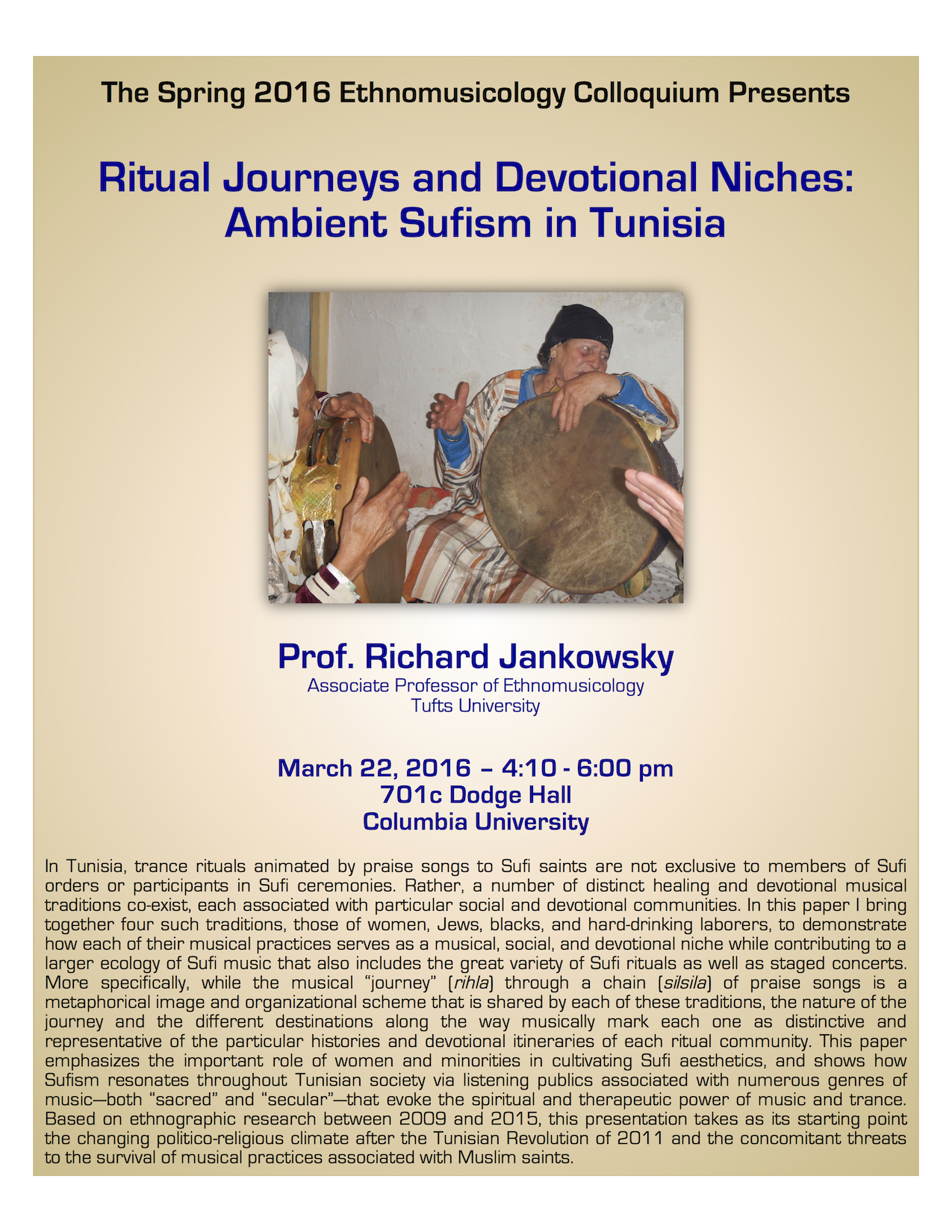
“Ritual Journeys and Devotional Niches: Ambient Sufism in Tunisia”
In Tunisia, trance rituals animated by praise songs to Sufi saints are not exclusive to members of Sufi orders or participants in Sufi ceremonies. Rather, a number of distinct healing and devotional musical traditions co-exist, each associated with particular social and devotional communities. In this paper I bring together four such traditions, those of women, Jews, blacks, and hard-drinking laborers, to demonstrate how each of their musical practices serves as a musical, social, and devotional niche while contributing to a larger ecology of Sufi music that also includes the great variety of Sufi rituals as well as staged concerts.
More specifically, while the musical “journey” (riḥla) through a chain (silsila) of praise songs is a metaphorical image and organizational scheme that is shared by each of these traditions, the nature of the journey and the different destinations along the way musically mark each one as distinctive and representative of the particular histories and devotional itineraries of each ritual community. This paper emphasizes the important role of women and minorities in cultivating Sufi aesthetics, and shows how Sufism resonates throughout Tunisian society via listening publics associated with numerous genres of music—both “sacred” and “secular”—that evoke the spiritual and therapeutic power of music and trance.
Based on ethnographic research between 2009 and 2015, this presentation takes as its starting point the changing politico-religious climate after the Tunisian Revolution of 2011 and the concomitant threats to the survival of musical practices associated with Muslim saints.
___________________________
Richard Jankowsky (PhD, University of Chicago) is Associate Professor of Ethnomusicology at Tufts University, where he is also Director of the Graduate Program in Music. His book Stambeli: Music, Trance, and Alterity in Tunisia (University of Chicago Press, 2010) received honors from academic societies in ethnomusicology, anthropology, and North African studies. His most recent publications include essays on ritual and the space of betweenness (in Resounding Transcendence: Transitions in Music, Ritual, and Religion, Oxford University Press, 2016) and jazz and the democratic imagination (in Jazz Worlds/World Jazz, University of Chicago Press, 2016), and, as editor, the Middle East and North Africa volume of the Bloomsbury Encyclopedia of Popular Music of the World (2015). His current book project examines the politics and circulation of Sufi ideas and aesthetics through musical routes that rely on, yet transcend, genre distinctions in pre- and post-revolutionary Tunisia.
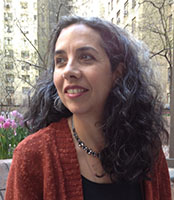
The Center for Ethnomusicology warmly congratulates our colleague Prof. Ana Maria Ochoa (Ethnomusicology), whose new book Aurality: Listening and Knowledge in Nineteenth Century Colombia (Duke University Press, 2014) has been co-awarded the prestigious Alan Merriam Prize from the Society for Ethnomusicology.
The Merriam Prize recognizes "the most distinguished, published English-language monograph in the field of ethnomusicology" of the prior two year period.
___________________________________________________________________________
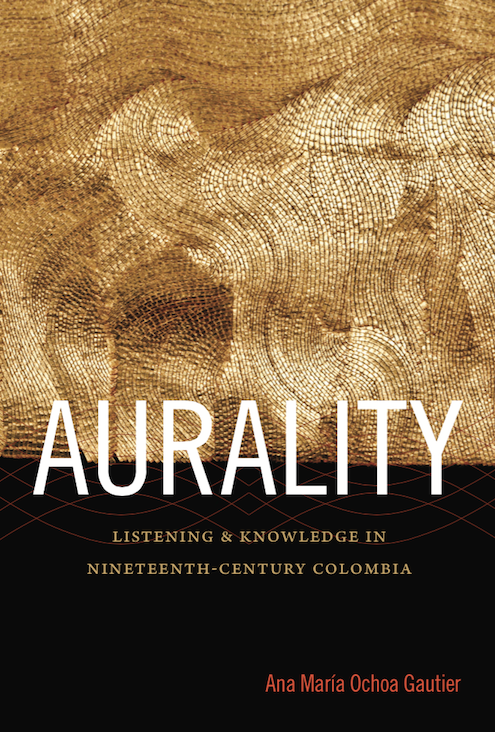
Event Start:
Friday, November 13, 2015 - 4:00pm
Location:
701C Dodge Hall, Center for Ethnomusicology
The Center for Ethnomusicology presents a talk by:
Prof. Louise Meintjes
(Departments of Anthropology and Music, Duke University)
"Ululation"
Date: Friday, November 13, 2015
Time: 4:00PM
Location: 701C Dodge Hall, Center for Ethnomusicology. (Columbia University Morningside Campus at 116th St.
(Location Map)
Free and open to the public; reception to follow talk.
Louise Meintjes is Associate Professor of Music and Cultural Anthropology at Duke University and author of Sound of Africa! Making Music Zulu in a South African Studio (Duke UP 2003). Her new book, Dust of the Zulu: Ngoma Aesthetics after Apartheid, is forthcoming on Duke University Press in 2016.
Event Start:
Thursday, November 12, 2015 - 4:00pm
Location:
701C Dodge Hall -- The Center for Ethnomusicology (Columbia University Morningside Campus)
The Center for Ethnomusicology presents a talk by:
Prof. Alex E. Chavez
Assistant Professor of Anthropology
University of Notre Dame
"Sounds of a Precarious Present, or Post-Mexico in the Offing . . ."
Date: Thursday, November 12 2015
Time: 4:00PM-6:00PM (reception to follow)
Location: 701C Dodge Hall - The Center for Ethnomusicology (Columbia U. Morningside Campus, at 116th St.)
Free and Open to the Public, No RSVP Required
For further information write to: aaf19@columbia.edu
Abstract: In the post-NAFTA era of intensified transnational migration, state and narco violence carried out with impunity, and calls for indigenous autonomy across Mexico, the growing perception of a waning Mexican state has taken hold in both the local and the global imagination. Dr. Chávez’s talk considers this tensive reality and attends to a grassroots politics of culture with specific focus on the New Years Eve ritual huapango arribeño performance in the highlands of northeastern Guanajuato. There, two ensembles engage in both poetic dueling and musical flyting in the town of Xichú from dusk until dawn while thousands of spectators ring in the New Year. The ensuing music and poetics that fluoresce, it is argued, animate affective desires of connection and recognition that gesture toward a post-national imagination. In pursuit of this claim, the expressive grammar of huapango arribeño is considered alongside conventional scriptings of Mexican cultural nationalism—which have inscribed huapango as one musical trope of Mexicanidad—and officialized state discourses voiced recently in the face of widespread social unrest across Mexico.
Alex E. Chávez earned his Ph.D. in anthropology from the University of Texas at Austin with a concentration in folklore and public culture and also holds doctoral portfolios in both Mexican American Studies and Cultural Studies. Before joining the department, he was a post-doctoral fellow in the Institute for Latino Studies at the University of Notre Dame and at the University of Illinois at Urbana-Champaign where he served as both a Chancellor’s Postdoctoral Research Associate in the Department of Latina/Latino Studies and a Research Associate in the Department of Anthropology. From 2012-2014 he taught in the Latin American and Latino Studies Program at the University of Illinois at Chicago as a Visiting Assistant Professor. Centered around the US-Mexico Borderlands and Latinas/os in the United States, Chavez’s research and teaching interests explore the innermost workings of transnational migration, embodiment, place-making, and everyday life as manifest in political economies of performance with particular emphasis on music and language. His forthcoming book is entitled ¡Huapango!: Mexican Music, Bordered Lives, and the Sounds of Crossing (Duke University Press). In collaboration with Daniel Sheehy—Director and Curator of Smithsonian Folkways Recordings—he is currently lead consultant for a Folkways recording of huapango arribeño for inclusion in the world-renowned Tradiciones music series, lending an anthropological perspective on this music to a broader audience. In a similar capacity, he also serves as co-contributing editor of the Association of Latina and Latino Anthropologists column in Anthropology News, helping anthropological research focused on U.S. Latinas/o communities reach a wider public. He has published in the Latin American Music Review, Journal of Linguistic Anthropology, Southern Cultures, Música Oral del Sur, and has contributed to Celebrating Latino Folklore: An Encyclopedia of Cultural Traditions (2012), Iconic Mexico (2015), Latino, American, Dream (forthcoming, Texas A&M Press), in addition to Con La Música a Otra Parte: Migración e Identidad en La Lírica Queretana (2010) published with the support of the Fondo Nacional para la Cultura y Las Artes in Mexico.
Alex Chavez Curriculum Vitae
Event Start:
Monday, October 26, 2015 - 4:00pm
Location:
701C Dodge Hall (Center for Ethnomusicology)
The Center for Ethnomusicology Colloquium Series Presents:
Prof. Carlos Sandroni
(Ethnomusicology, Federal University of Pernambuco [Recife], Brazil)
"Mário de Andrade (1893-1945) and the music of Northeastern Brazil"
Monday Oct. 26, 2015
4:10PM
701C Dodge Hall (The Center for Ethnomusicology)
Free and Open to the Public
______________________________________
Carlos Sandroni was born in Rio de Janeiro in 1958. He studied Sociology and Political Sciences in the university of Rio, and guitar in private lessons. He did a doctorate in Musicology in France, at the Université de Tours. His dissertation (finished in 1997) was in the early history of samba, and it was published in Rio in 2001. The early history of Brazilian popular music (roughly, 1880-1940) remains a field of interest.
Sandroni came back to Brazil in 1997 and since then has taught Ethnomusicology at the Federal University of Pernambuco (Recife). The Brazilian Ethnomusicology Association was founded in 2001 and Sandroni was its first president (2001-2004). In 2004, the Brazilian Ministry of Culture hired him to work on the Brazilian nomination for the Intangible Cultural Heritage list of Unesco, samba-de-roda from Bahia. The nomination was accepted by Unesco. Since then he has developed a second important field of research: the impact of the public policies related to Intangible Cultural Heritage on popular musicians and dancers from Northeastern Brazil.
In 2007,Sandroni was a Tinker Visiting Professor at the University of Texas at Austin. In 2008, he was an Associate Researcher at the Center for Ethnomusicology Research in Paris.
Sandroni published an earlier book, on the Brazilian writer-musicologist Mário de Andrade and his work on public culture (São Paulo, 1988). He also co-edited two other volumes with colleagues: one about the samba de roda from Bahia (Brasília, 2007), and another about the public policies on intangible heritage (Recife, 2014).
He has published two collections of field recordings. One is a double CD on traditional music from Pernambuco and the neighbor state of Paraíba (Recife, 2005), and the other is a single CD on samba de roda music (Salvador, 2006).
As a singer, guitarist, and songwriter, Sandroni published in 2014 the CD "Sem regresso."
His current projects are a collection of articles on the history of Brazilian popular music, and a book on the Intangible Heritage Policies in Brazil.
The Department of Music and the Center for Ethnomusicology warmly congratulate our Class of 2015 Graduates! We wish you all every success on the road ahead!
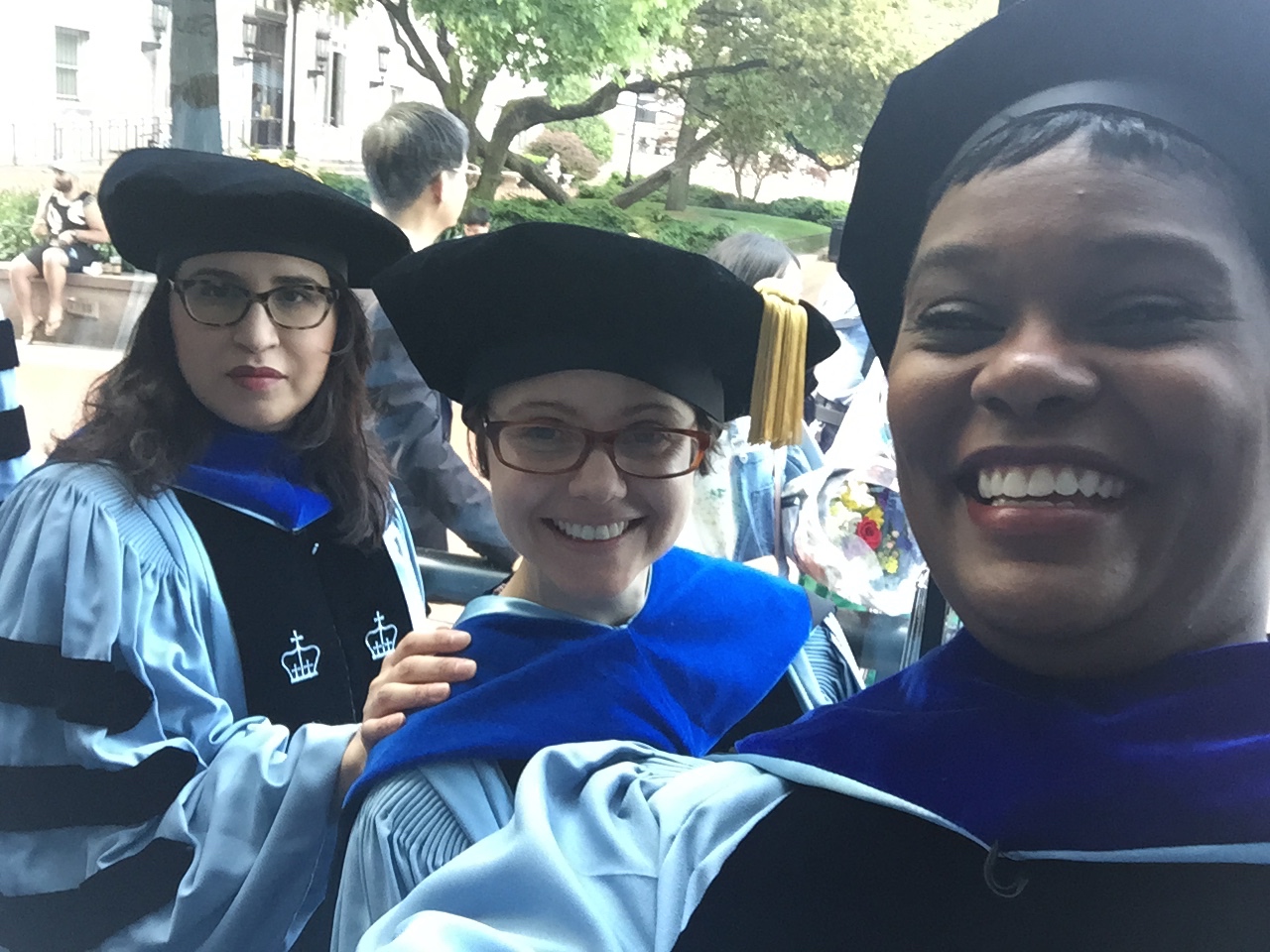
UNDERGRADUATES
COLUMBIA COLLEGE
Music Majors:
Ziyad Abdelfattah
Stephen Adamow
Amy Garvey
Samuel Karlinski
Yeana Lee (Departmental Honors)
Robert Lyman
Miles Oliva
Joseph Quintas
Andrew Rodriguez
Mitchell Veith (Departmental Honors)
Music Concentrators:
Kevin Chen
Devon Mehring
Sonall Mehta
Emma Riley
SCHOOL OF GENERAL STUDIES (Music Majors)
Audrey Amsellem (Departmental Honors)
Benjamin Loya
Josephine Tang
BARNARD COLLEGE (Music Majors)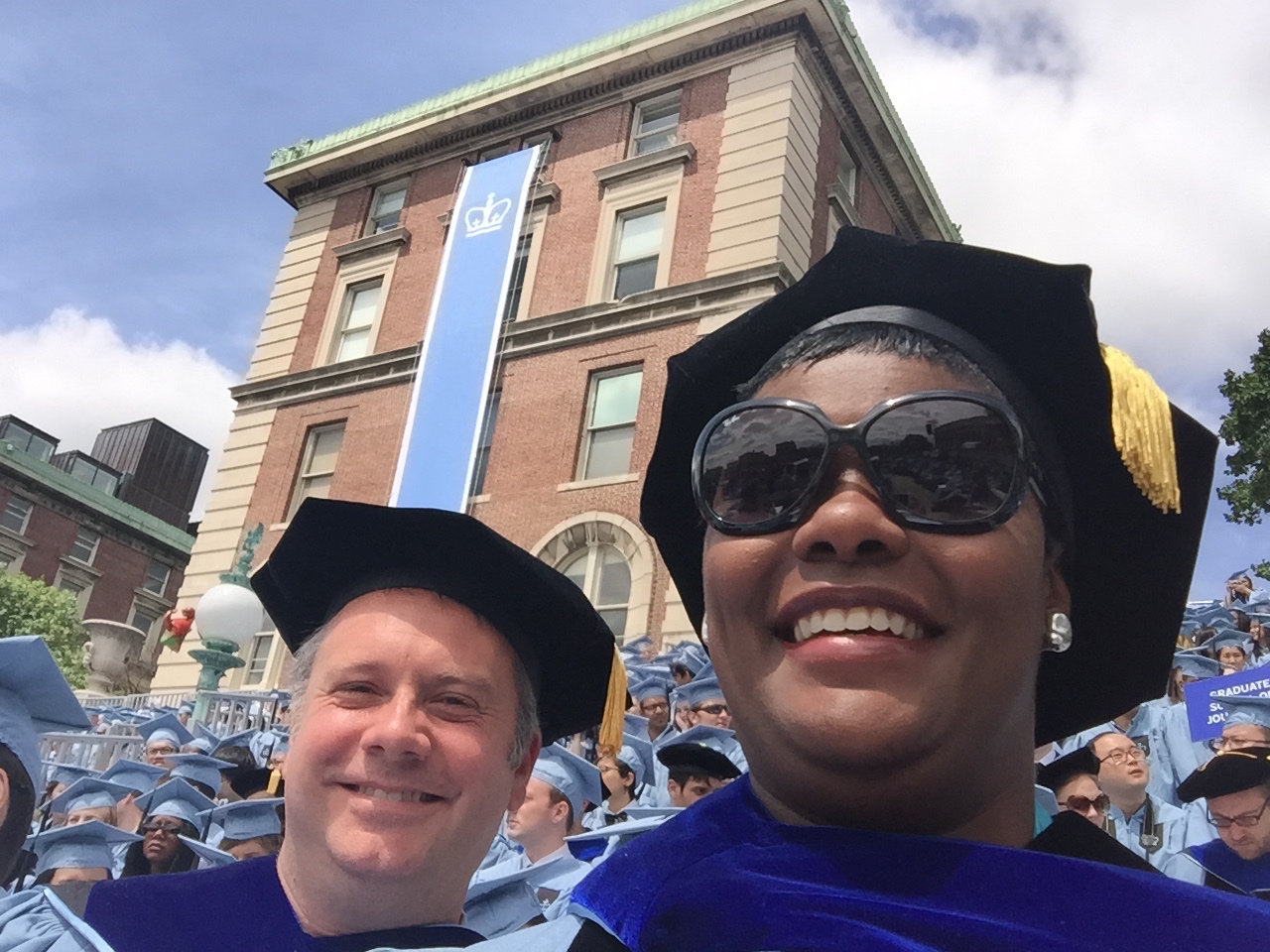
Courtney Craig (Ethnomusicology)
Katherine Huet
Sophie Lewis (Ethnomusicology)
Isabella Livorni
Rachel Susser
Zaynep Toraman
Cecile Urmenyhazi (Ethnomusicology)
GRADUATE STUDENTS (GSAS)
PHD
Shannon Garland (Ethnomusicology)
Melissa Gonzalez (Ethnomusicology)
David Gutkin
Jonathan “Toby” King (Ethnomusicology)
Ashley Nail
Martha Newland (Ethnomusicology)
Alexander Rothe
DMA in Composition
Sophia “Zosha” di Castri
Geoffrey Holbrook
Yoshiaki Onishi
_________________
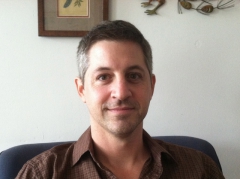
The Center for Ethnomusicology warmly congratulates our alumnus Dr. Nicholas (Niko) Higgins, (PhD, Ethnomusicology, 2013), who has been appointed to a (renewable) Guest Faculty position at Sarah Lawrence College.
Dr. Higgins' PhD dissertation is entitled "Confusion in the Karnatic Capital: Fusion in Chennai, India." It was advised by Prof. Christopher Washburne. Dr. Higgins has previously taught at Columbia University and at The New School.
_____________
The Center for Ethnomusicology congratulates 2009 Columbia Ethnomusicology PhD alumnus
Dr. Andrew Eisenberg, who has been appointed Assistant Professor of Music at New York University's Abu Dhabi campus!
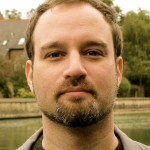
Andrew J. Eisenberg is Assistant Professor of Music at NYU Abu Dhabi. He was Visiting Assistant Professor of Music and
Anthropology at Bard College in 2013-14, and at NYUAD in 2014-15. Between 2011 and 2013, he served as
Postdoctoral Research Associate in charge of the Kenya portion of the
ERC Music and Digitisation Programme, while also holding a junior
research fellowship at St. Catherine's College, Oxford. He earned a PhD
in ethnomusicology from Columbia University in 2009, with a dissertation
on vocal expression, emplacement and citizenship among marginalized
Muslims of Kenya's 'Swahili coast'. A book based on his dissertation is
slated for completion in 2014. Its working title is Sound and
Citizenship: Voice, Place, and Belonging on Kenya's 'Swahili Coast'.
Andrew
has published articles and chapters in the journal Africa, The New
Encyclopedia of Africa (Scribner), Anthropology News, and the volume
Music, Sound and Space: Transformations of Public and Private Experience
(ed. Georgina Born, Cambridge University Press). He is currently
writing three articles for the Music and Digitisation Project. Based on a
year of fieldwork in Nairobi, they examine how Kenya's music recording
industry has been, and continues to be, transformed by the digital
revolution, the liberalisation of mass media and telecommunications, and
intellectual property rights reform.
Andrew has previously held visiting posts
at Northwestern University and Stony Brook University, where he has
taught courses in African and African American music, and
ethnomusicological theory and method
The Center for Ethnomusicology warmly congratulates Dr. Nili Belkind, a 2014 alumna of the Columbia Ethnomusicology PhD Program, who has been awarded a two-year Illinois Program for Research in the Humanities-Mellon Post-Doctoral Fellowship in the Humanities, at the University of Illinois at Urbana-Champaign
Dr. Belkind's Columbia dissertation is entitled Music in conflict: Palestine, Israel, and the politics of aesthetic production. It was sponsored (advised) by Prof. Christopher Washburne. The dissertation is an ethnographic study of the fraught and complicated cultural politics of music making in Israel-Palestine in the context of the post-Oslo era, a time of highly polarized sentiments and general retreat from the expressive modes of relationality that accompanied the 1990s peace process. In it, she examines the politics of sound and the ways in which music making and attached discourses reflect and constitute identities, and also, contextualize political action. Ethical and aesthetic positions that shape contemporary artistic production in Israel-Palestine are informed by profound imbalances of power between the State (Israel), the stateless (Palestinians of the oPt), the complex positioning of Israel’s Palestinian minority, and contingent exposure to ongoing political violence.
Congratulations Nili!